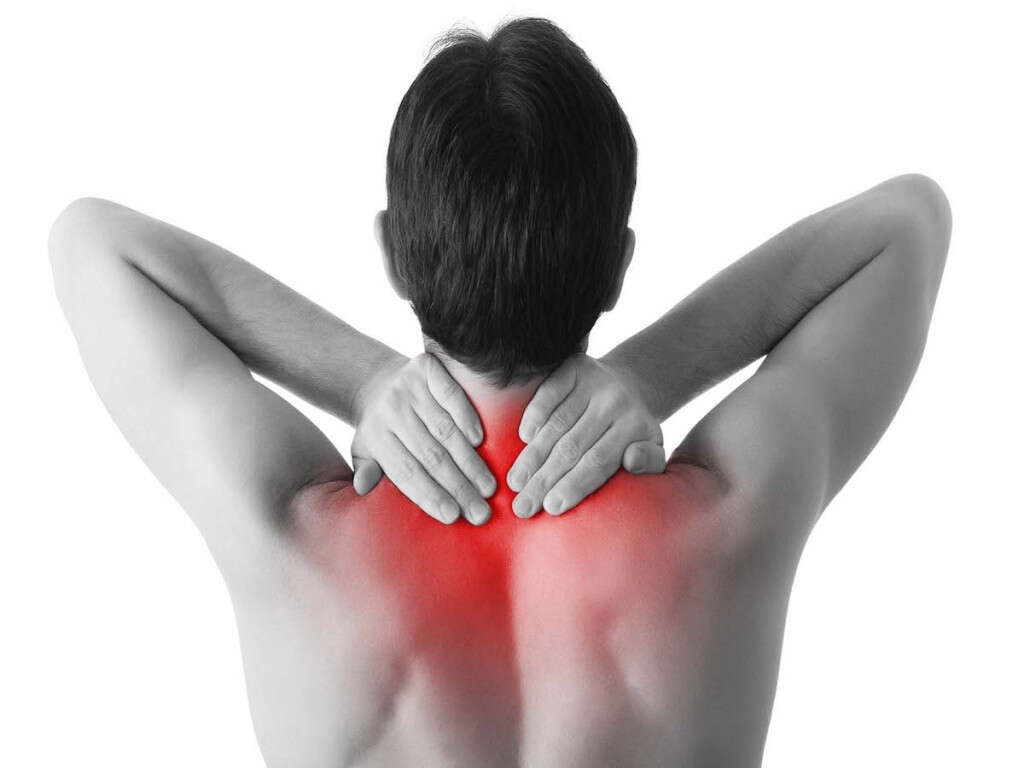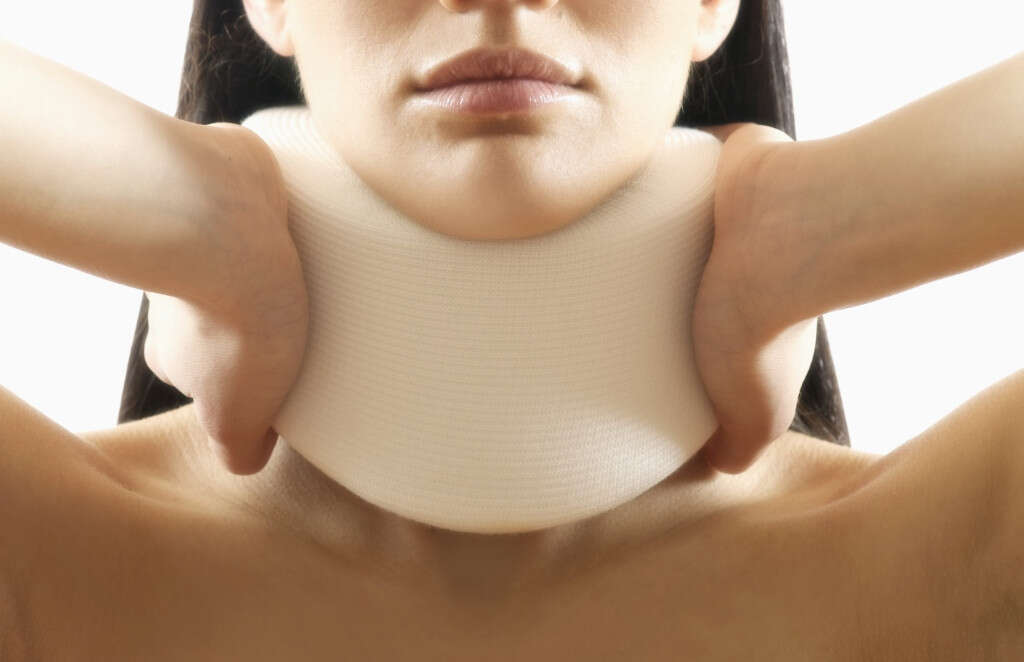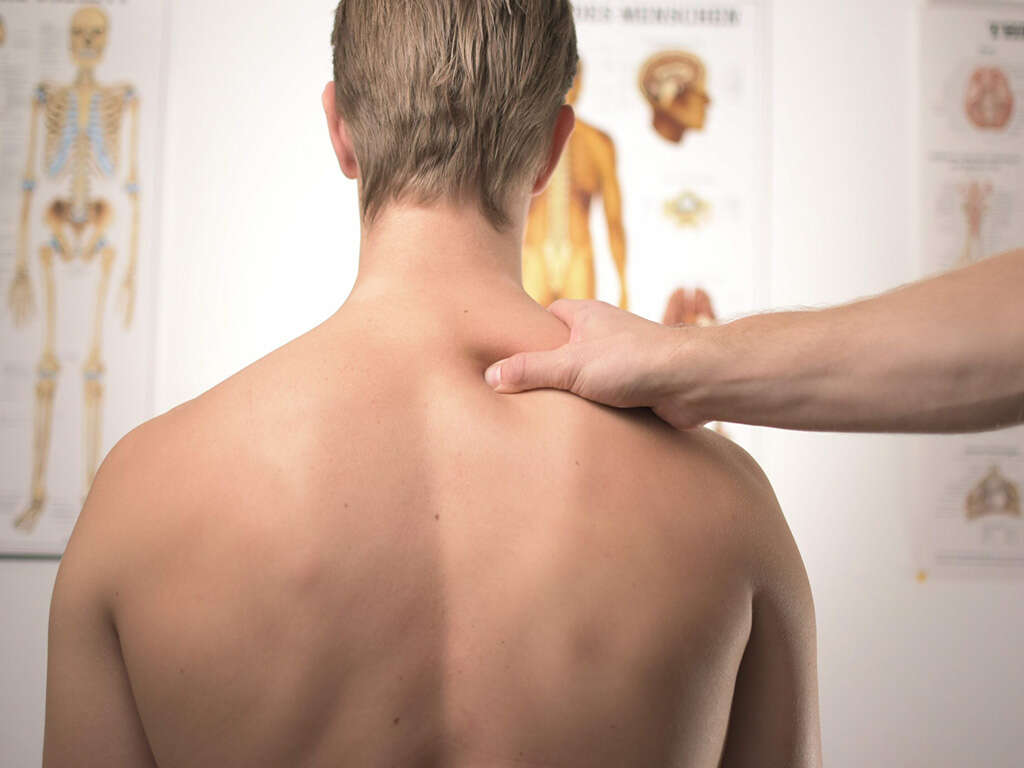10 Symptoms of Whiplash
Whiplash is the name of a neck injury which occurs as a result of sudden head movement forward, backward or sideways. Whiplash can occur as a result of a car accident, sporting activity, a fall or physical abuse. The movement causes the neck to make a movement in a manner similar to a whip, hence the name whiplash. This leads to sudden stretching of the tissues in the neck, leading to injury that varies depending on the speed and extent of the sudden movement 1https://www.nhs.uk/conditions/sprains/Pages/Introduction.aspx.
In most cases, whiplash improves within weeks. However, there are cases in which whiplash lasts for months. In some cases, whiplash symptoms may go on for years and become chronic. They may also present with varying severity. Because of the varied nature of whiplash symptoms and the uniqueness of each case, the condition is referred to as whiplash associated disorders.

Symptom #1: Stiff Neck
A stiff neck that occurs after you have been in an accident or experienced sudden movement of the head may be a whiplash symptom. In most cases, a whiplash injury affects the soft tissues in the neck. It may also involve a joint, ligaments or even discs. This can lead to soreness that limits your range of motion. As a result, you may find it difficult to move your neck either sideways, forwards, backwards or in several directions depending on the location of the injuries.
It is, however, an inconclusive assumption because other conditions such as meningitis can also present with a stiff neck. Irrespective of whether or not you are sure about the whiplash, it is important that you see a health professional for examination and determination of your condition.

Symptom #2: Neck Pain
Neck pain is another whiplash symptom with varying severity depending on the extent and location of the injury. Mild pain localized in one area can be indicative of a minor whiplash injury, while severe pain can indicate that the injury affects a more extensive area.
Whiplash pain may also radiate from one area of the neck to another or down into the shoulder or back. In some cases, the pain may also affect the arm, hands and even the fingers. It is worth noting that besides affecting soft tissues, whiplash injury may also involve ligaments, bones and nerves.

Symptom #3: Unstable Neck
Neck instability, which is when the neck doesn’t hold as it should, may be a symptom of whiplash. This is caused by overstretched or torn ligaments and muscles such that the bones or other tissues are not held in place. As a result, you may experience uncharacteristic neck posture or movement.
If the injury is serious, recovery might be so difficult that the damage becomes permanent. This can lead to a condition known as alteration of motion segment integrity or AOMSI. This can mean that your neck no longer holds the posture it had, or you acquire a new, uncharacteristic neck movement.

Symptom #4: Shoulder Pain
Shoulder pain that begins soon after or even days following a violent head movement is yet another whiplash symptom. Shoulder pain can occur on its own or in addition to neck pain depending on the location and extent of the injury.
The injury may also affect the upper back. As with neck pain, shoulder pain due to whiplash can vary in severity depending on the damaged tissues and the extent of the injury. The shoulder or back pain may occur concurrently with, or separately from, other whiplash symptoms like a stiff neck and unstable neck. As with other whiplash symptoms, it is recommended that you consult a doctor for assessment.

Symptom #5: Lower Back Stiffness
While in most cases, whiplash symptoms occur in the neck and the upper parts of the torso, they can also occur as lower back stiffness or pain. This is especially common in occupants of a motor vehicle that is struck from the front, rear or the side. The impact can cause a violent movement of the body. It is worth noting that in the event of a sudden violent movement, the body does not have the time to adjust and absorb the shock.
As a consequence, more extensive injuries can occur and affect muscles, ligaments, and bones including the discs in the lower spine. This can lead to stiffness and pain in the affected parts.

Symptom #6: Tingling or Numbness
A tingling or numb feeling that occurs hours, days or weeks after experiencing sudden movement of the head, neck and other parts of the body may be a symptom of whiplash. These feelings occur when whiplash causes compression or inflammation of one or more main nerves in the spine.
The compression or inflammation causes tingling or numbness that radiates from the nerve root area, down the length of the nerve and onwards to the parts of the body served by the nerve. In most cases, tingling, numbness or weakness begins in the neck, radiating through the shoulder to the arm, hand and fingers. It usually affects one side of the body, although in some cases it can affect both sides.

Symptom #7: Tinnitus
Tinnitus or ringing in the ears is another possible symptom of whiplash. The sound, which may range from ringing to buzzing, may affect one or both ears, and may be continuous or come and go. Tinnitus can be distracting and stressful.
Tinnitus that occurs as a result of whiplash may be caused by several types of injuries. These include trauma that affects nerves serving the ears or the region of the area brain responsible for hearing. Buzzing or ringing in the ears may also result from injuries in the jaw or blood vessels. It may also occur as a result of stress.

Symptom #8: Poor Mental Concentration
Whiplash can also cause poor mental concentration or memory problems. This can mean that the whiplash victim finds it difficult to concentrate or recall some memories. These mental symptoms of whiplash may start soon after the injury. They may also appear several hours or days after injury.
Poor mental concentration or memory problems may be caused by an injury in the brain. It may also result from physical or mental stress. It is worth to note that a combination of the other symptoms of whiplash such as pain, sleeplessness and weakness may cause the patient to feel stress. This may be one cause of poor concentration or memory problems.

Symptom #9: Sleep Disturbances
Whiplash may also lead to sleep disturbances which may occur due to the pain emanating from the injured tissues. The sleep disturbances may result from sadness, worrying and other emotional changes that the patient undergoes as a consequence of dealing with posttraumatic challenges. The patient may not have the means to support himself or his family following whiplash injury. This can interfere with his sleep.
It is worth to note that worrying and sleeplessness can lead to increased stress or even depression. These secondary whiplash symptoms can compound the problem and interfere with the healing process. The patient may also experience other symptoms like poor appetite, fatigue, dizziness and vision problems.

Symptom #10: Emotional Problems
Emotional issues such as irritability, anxiety and depression may be symptoms of whiplash. These symptoms may arise as a result of posttraumatic stress following the events leading to the whiplash injury. Stress may also result due to issues that arise after the accident, including medical bills, incapacity to earn, litigation and similar injuries in loved ones.
If a person with whiplash injuries is weighed down by such issues, he may experience emotional changes such as extreme sadness, worrying, poor concentration and depression. These changes can lead to symptoms like sleep disturbances and social withdrawal or even depression and suicidal tendencies.












